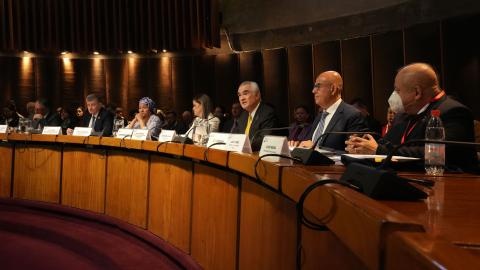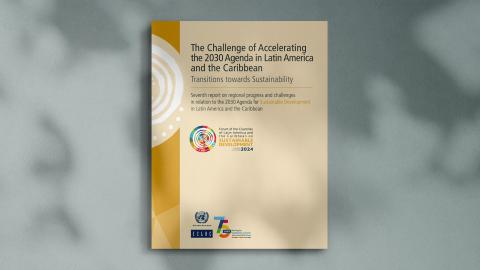Press Release
(5 August 2014) Gradual increases in the minimum wage help to reduce inequality and do not have significant adverse effects on aggregate employment, according to the Economic Commission for Latin America and the Caribbean (ECLAC), which was taking part in a forum on the subject that began today in Mexico City.
The meeting was jointly organized by ECLAC, the Federal District Government, the Federal District Economic and Social Council, the National Autonomous University of Mexico (UNAM) and the Friedrich Ebert Foundation, and will be held until Wednesday at the National Anthropology Museum. It will be attended by representatives of federal agencies, legislative chambers, political parties, academic institutions, employer organizations and trade unions.
In a message read out at the opening of this International forum on minimum wages, employment, inequality and economic growth, the Executive Secretary of ECLAC, Alicia Bárcena, highlighted the "enormous potential of minimum wage policy to improve the income of the most disadvantaged, promote equality and strengthen internal demand" as this contributes to economic development.
The Head of Mexico City's government, Miguel Ángel Mancera, stated that the country "is suffering from a new wave of precarious employment", and that it was therefore vital to discuss increasing the minimum wage. According to Mr. Mancera, "this dialogue is part of that path", referring to the Executive's proposal on this matter that will take some inspiration from the inputs to this forum and will be presented in a few weeks.
Mexico's Undersecretary for Labour and Social Security, Rafael Avante, pointed out that the Federal Government has three objectives in this area: standardize the minimum wage throughout the country, detach it from legislative provisions, and positively improve the purchasing power of workers. Mr. Avante also advocated a debate on the minimum wage that goes beyond political stances.
Chancellor of UNAM, José Narro, called for macroeconomic achievements to be balanced with the country's microeconomic needs, and said that all sectors should be involved in achieving a situation that reduces inequality and poverty.
The Deputy Executive Secretary of ECLAC, Antonio Prado, also spoke at the meeting to underline that the region's minimum wage policies should be based on gradual increases that fit in with macroeconomic, productive and credit policies.
In terms of major social agreements, Antonio Prado mentioned ECLAC's proposal for the region's countries to conclude compacts for labour equality that include programmes aimed at narrowing gaps in productivity, labour income and employment quality.
ECLAC studies on Argentina, Brazil, Chile and Uruguay show that improving minimum wages has reduced inequality without having a negative impact on employment. This has taken place in a context of growing employment and a surge in formal employment.
Mexico is the region's only country where the minimum wage is lower (0.66 times) than the poverty threshold. This is in contrast with Costa Rica, where the minimum wage is three times higher than the poverty line (3.18 times, to be precise). According to available data, almost 14 % of Mexican workers earn even less than the minimum wage.


